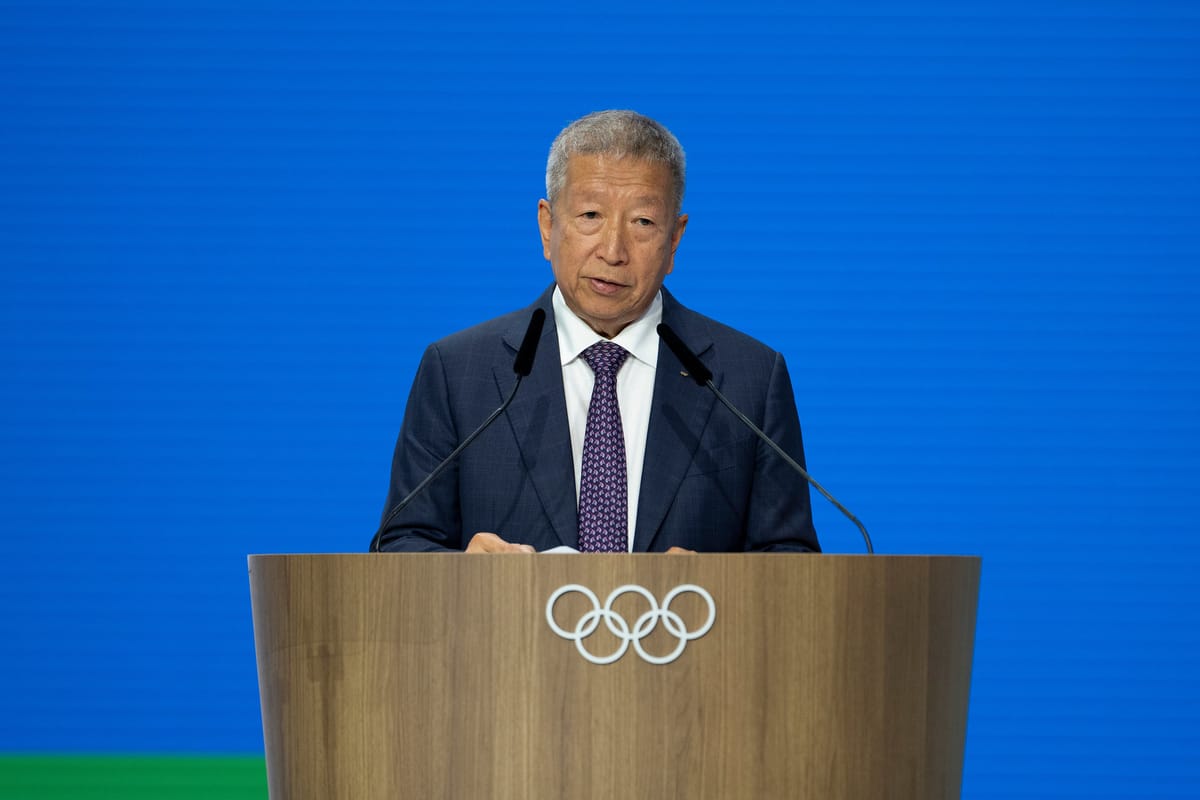Auditor-General flags lapses by govt agencies, including possible falsification in PUB documents
In one case a police report was made over possible irregularities in the quotations for a PUB contract.
Summary
- AGO's audit (2024-2025) found falsified documents in two PUB contracts, one involving $6.75M waterscape works and another a $7.95M biocide supply.
- The audit highlighted 25 significant lapses, including contract management, revenue handling, IT controls, and R&D grants, urging greater attention in these areas.
- MOF is updating training and agencies will tighten processes; serious action will be taken against those undermining government integrity and accountability.
AI generated
Sep 09, 2025
SINGAPORE - Singapore’s public accounts watchdog has flagged lapses and irregularities in its annual audit of government ministries and agencies, including instances where contract documents were altered to give the impression that required checks had been carried out.
One case of falsified documents involved a PUB contract, valued at $7.95 million, to supply biocide for midge control, said the Auditor-General’s Office (AGO) in its report for the 2024 to 2025 financial year.
Under the contract, the contractor had to provide certificates of analysis from an accredited laboratory to show that the biocide met required specifications.
The AGO found tell-tale signs of possible irregularities in the soft copy of all six certificates that the national water agency submitted for audit.
These problematic soft copies had different version numbers, formatting and information from the original hard copies provided by the contractor, and “sought to give the false impression that checks on the active ingredient level had been performed… and that PUB had accepted goods that met its contractual requirements”, said the AGO in its report released on Sept 9.
“Such actions cast doubt on the authenticity of the other documents furnished for audit and impede the work of AGO,” the watchdog said.
In a statement, the Ministry of Finance (MOF) said PUB has launched an internal investigation into the matter, and “will be taking the necessary actions, including referring the case to the police if there are grounds to do so”.
PUB separately said disciplinary actions have been taken against the officers involved, without elaborating. ST has asked PUB for details of the actions meted out.
The agency also said it had conducted thorough checks and confirmed the quality of the stocks it received earlier. It added that it has quality control processes in place, like testing by accredited laboratories.
In another lapse, the PUB made a police report over possible irregularities in quotations for a $6.75-million contract for waterscape works.
The AGO found irregularities in the quotations for 23 out of 25 “star rate items”, for which rates were not listed in the contract. The value of these items came up to $148,900, or 94 per cent of the total value of items checked.
Given these irregularities, the AGO said it had concerns over whether the quotations were authentic, and if they were good value for money.
The PUB said the items were for additional works due to changes in design or scope. It added it found no such irregularities after reviewing similar contracts.
These two instances were among the 25 more significant lapses the AGO flagged in its report, out of a total of 132 which it found.
The others that the AGO highlighted had to do with contract management and procurement; management of operations, revenue and grants; weaknesses in IT controls, as well as the handling of research and development grants.
The AGO urged the public sector to pay greater attention to contract management and procurement, management of revenue and irregularities in records submitted for audits.
It said agencies should maintain adequate oversight over their consultants and contractors, to ensure goods and services provided actually meet contract requirements before payment is made.
Tenders must also be evaluated according to published evaluation criteria, to ensure contracts are awarded in line with the procurement principles of transparency, fairness and value for money, said the AGO. It noted that there were instances across several agencies where the evaluation criteria was not followed, adding this could raise questions on fairness.
On the management of revenue, the AGO said public money collected under the law should be properly accounted for as government revenue.
The AGO also reiterated that it takes a serious view of agencies furnishing false information and altered documents, as this hampers the audit and casts doubt on the authenticity of other documents.
It also suggested that public agencies make greater use of administrative data and data analytics to enhance the effectiveness of checks. For example, when administering schemes, agencies can tap data sources across the public sector instead of relying solely on applicants’ declarations.
Responding to the issues raised, MOF said it was updating training programmes and learning resources so that public sector officers can better identify key issues when evaluating or managing contracts.
It added that individual agencies have stepped up training and will share learnings across the public service.
As for revenue management, the agencies with lapses will tighten their processes and ensure they comply with existing rules for revenue collection and management, said MOF.
MOF also said the Government takes a serious view of the irregularities in records and has reiterated to senior public service leaders the importance of scrutinising this area of work.
“In addition, we have also reminded officers that actions that undermine trust in the integrity and accountability of Government will not be condoned, and that stiff action will be taken should such irregularities take place,” said the ministry.
It added that the annual audits are crucial for maintaining public trust, accountability and transparency in the management of public money.
“Where there are lapses, agencies will review each case thoroughly to identify the root causes and take corrective actions promptly. Good practices and areas for improvement will also be shared across public agencies to enhance governance and performance,” MOF added.
Auditor-General Ng Wai Choong, in a note at the end of the report, said he was pleased that the public sector agencies audited had taken the observations seriously and were committed to address the lapses.
“AGO will follow up with them to ensure that remedial actions are taken,” said Mr Ng, who took over the role from Ms Goh Soon Poh on Feb 8.
Several of these lapses were found in ministries such as the Ministry of Education (MOE), Ministry of Foreign Affairs (MFA) and Ministry of Manpower (MOM).
The AGO conducted checks of Post-Secondary Education Account withdrawal records from April 2021 to March 2024, and of withdrawals by three training providers totalling $30.09 million over the period.
It found that one training provider made multiple withdrawals for the same course or withdrew amounts exceeding the course fees in 299 instances. There were also eight instances where an account member paid for eight courses by the provider, but had not enrolled in any of the courses.
Altogether, these led to unutilised account withdrawals totalling $116,200, which the training provider knowingly held for as long as 2.8 years, said the AGO.
It flagged inadequate oversight by MOE in the administration of PSEA withdrawals, noting the ministry had relied on the training providers and account holders themselves to ensure that the funds were used for approved purposes. This meant there was no assurance that regulations were followed.
Withdrawals were also allowed even before account holders had enrolled in a course, which increased the risk of the funds being held and retained by training providers, AGO said.
In response, MOE said the training provider had since refunded the unutilized sums. The ministry also said it would check all providers for duplicate withdrawals in the past six years, and look into the feasibility of implementing system checks.
MOE added that the withdrawal process has been progressively tightened since 2022, with account holders now required to authenticate each withdrawal using Singpass.
It also started a pilot initiative in December 2023 to engage auditors for in-depth audits of selected training providers with plans to cover all of them eventually.
At MFA, the AGO found that some $1.02 million in fees collected by Honorary Consuls-General and Honorary Consuls were not tracked and accounted for as government revenue, even though this was required under the law.
Honorary Consuls-General and Honorary Consuls are volunteers appointed by MFA to represent Singapore and perform services such as processing visa applications or providing consular assistance overseas.
While they are not paid any salary or honorarium, they are allowed to retain the fees collected to offset operating costs they incur.
In its report, the AGO said MFA had previously assessed the amount of fees collected to be small, and felt that tracking it would likely cost more than the fees collected. But AGO added that the fees are public money and would need to be accounted for in the Consolidated Fund, which functions like a bank account for the government.
According to the Schedule to the Diplomatic and Consular Officers (Fees) Order 2012, fees related to visa application can range from $10 to $100.
MFA estimated that for the 2024 to 2025 financial year, the total costs incurred by the Honorary Consuls-General and Honorary Consuls exceeded the total visa revenue collected.
Thus, there was no net loss in public funds, MFA said.
Over at MOM, the AGO found IT weaknesses that could compromise the servers of the Work Pass Integrated System-Employment Pass web application used for the application, renewal and cancellation of employment passes.
Besides auditing government financial statements, the AGO also carried out a thematic audit on some $654.96 million of Research, Innovation and Enterprise 2025 grants disbursed by A*Star and the National Research Foundation (NRF).
The AGO found that A*Star and NRF had put in place processes and controls across the various grant stages, from design to evaluation, disbursement and monitoring to cessation, adding that there were good practices such as independent grant management units and clear parameters for grants.
But there were also areas were controls could be improved for transparency and to reduce potential conflict of interest, said the AGO.
In the case of A*Star, there were instances where the executive directors of host institutions - which employ researchers and facilities - endorsed project progress reports which they themselves had submitted as principal investigators.
For NRF, the management of host institutions had sometimes endorsed the fund requisitions of projects they themselves were leading.
In a joint statement, the two agencies acknowledged the concerns. They added that A*Star now requires such progress reports to be re-routed to someone else for endorsement, while NRF has stipulated an explicit rule that funding requisitions can only be endorsed by non-conflicted members of the institution’s management.
The AGO report was submitted to the President on July 2, and presented to Parliament on Sept 8.


















